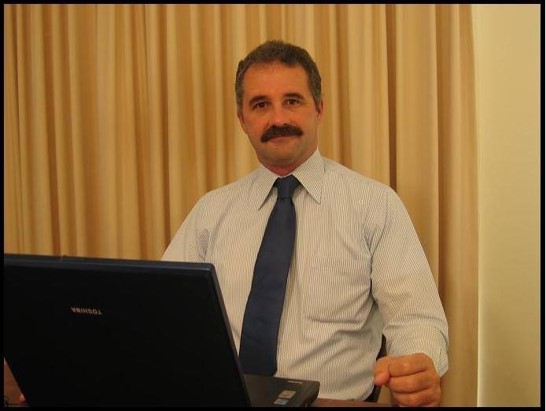Glen Eastlake has been an aviation professional for more than 30 years and achieved the rank of Boeing 737 Captain. He is acutely aware of the hostile environment that a planeload of people is exposed to while moving from one strip of bitumen to the next.
Due to the advances in technology, the number of errors occurring in the sky has decreased over the years, while passenger numbers continue to rise. However, technology can only get us so far and that’s when the world of human factors comes into play. It’s here that we can look at individuals as fallible humans and assess the organisation as a whole.
Glen discussed how in many cases a technical skill failure such as not responding to a mid-air alert, is preceded by a non-technical skill failure such as fatigue, stress or even boredom. He graphically illustrated this by reviewing the China Airlines Flight 006 incident. See YouTube Panic Over The Pacific | China Airlines Flight 006 if you want to relive the moment (Note: no one dies, but don’t watch this if you have a fear of flying).
Fatigue and the degeneration in performance has also been a factor in many other incidents including Exxon Valdez, the Challenger Explosion and 3 Mile Island. The inevitable equation is: increased fatigue = error rate rises + error detection ability decreases. To the point where a worker in charge of a vehicle who has had no sleep for 24 hours might as well be driving with two times the legal drug alcohol limit on board.
Stress is another cause of performance deterioration. The challenge here is that our ‘non-specific response to change’ can be useful and motivating. Yet, at its extreme stress can cause short term memory loss, cognitive tunnelling and serious health issues.
The key takeaway from Glen’s presentation was that both fatigue and stress are serious risks that can seriously affect a business. It doesn’t matter whether the causes of the stress and fatigue are external or internal to the business, we need to be aware of what is going on and manage the risks accordingly.
The COHSF committee would like to formally thank Glen for taking the time to come and speak to us and would welcome him back anytime. If you want to discuss some effective ways to manage stress and fatigue email: Glen.eastlake@Safeware.com.au
QUICK FIRE QUESTIONS
1. What has been the highlight of your working career?
Being a 737 Captain.
2. What has been the hardest decision that you have had to make during your working career?
Choosing to stop flying.
3. What was the hardest lesson that you have had to learn?
I’ve managed to avoid learning hard lessons as I’ve always been conservative by nature.
4. If you could go back to your first year in your professional role, what advice would you give to your younger self?
Enjoy the ride, the hard work will pay off and you will love being a Captain.
5. What advice would you give to people starting out in their health and safety career?
Don’t give up, it’s a tough career and yet incredibly rewarding.
6. What is the key message from your presentation?
Look at fatigue and stress from a health and safety perspective. Ask how is it error generating?
7. What is the one thing you would like the audience to do when they leave the conference?
Think about fatigue and stress as a serious risk and think about how you can manage it.
GET IN CONTACT
Website: www.safeware.com.au
Email: Glen.eastlake@Safeware.com.au
LinkedIn: www.linkedin.com/in/glen-eastlake
